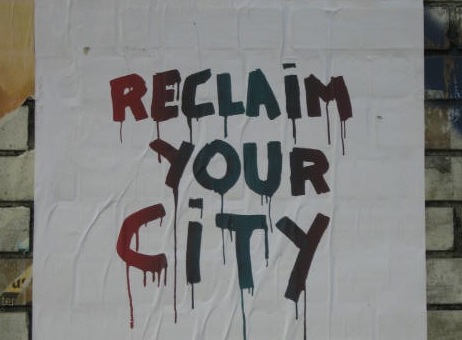The rising tide of housing activism Special Report
New in Ceasefire, Special Reports - Posted on Friday, September 7, 2012 0:00 - 1 Comment
By Samir Jeraj
“We are in the middle of a housing crisis, and yet over 700,000 homes are allowed to stand empty. Criminalising those who use these empty buildings to put a roof over their heads is completely nonsensical.” (Photo: Alex Vasudevan)
A wave of housing activism is sweeping the UK. Exposing rogue landlords, campaigning for changes to the law and forcing local and national government to take action – these are the housing struggles being waged.
The UK has a long history of housing activism. From the 1915-16 rent strikes in Clydeside, Glasgow , through the squatters movements of the 1960s and 1970s, and more recent campaigns to defend council housing.
The issues being fought by the new wave of housing activists are not so different, security of tenure, rent, and conditions all feature. What has changed is that these struggles have become a front in the conflict between generations, and a conflict involving the ‘precariat’, the group of “millions with insecure jobs, housing and social entitlements”.
In Edinburgh, a group of private renters set up the Edinburgh Private Tenants’ Action Group (EPTAG). They were tired of ‘abuse, threats and illegal eviction’ and wanted to do something about it. The authorities, the Council and the Police, were failing to take action:
“They told one tenant that his landlord was entitled to come round and smash things up in the flat, because he owns it”, explains Alyson MacDonald. The authorities “only took the tenant seriously when he produced a recording of the landlord threatening to send someone round to shoot him.”
Criminal landlords are one of two main areas of work for EPTAG. One such landlord was convicted of a breach of the peace and had their HMO license removed, but there is still a lot of work to be done to improve regulation, enforcement and advice to tenants.
The other area is illegal fees being charged by landlords and letting agents on top of deposit and rent. ‘£90 is the going rate for each adult in a flat’, according to research by EPTAG. The campaign took to the streets at the end of July and picketed the lettings agents DJ Alexander.
Behind the new wave of housing activism are complex social and economic changes. Growing insecurity in jobs and benefits has translated into ever more insecure housing. Whereas since the late 1980s privately-rented housing was seen as a transitional step towards home ownership, now there is talk of a ‘generation rent’ excluded from home ownership.
The ever diminishing life chances facing young people, migrants, and the working-class is, according to Guy Standing, creating a new ‘dangerous class’. It is from this class that the new popular movements in Spain and Greece draw their membership. It is also the class with the most to gain from housing activism.
We are already seeing responses as a result of this campaigning. Local and regional governments in Newham and Wales are looking at tightening regulation of private landlords by forcing them to register. In Norwich, a local Councillor has launched a national petition to improve the rights of private tenants after 40 of his constituents were handed eviction notices by their new landlord. EPTAG have succeeded in having one landlord banned by Edinburgh Council, and another having their HMO license removed.
Central government has however been less helpful by seeking to criminalise squatting, a form of housing activism that can be traced back to the 17th Century. A campaign group called SQUASH (Squatters’ Action for Secure Homes) is fighting against the criminalisation of squatting and for housing rights. They are collecting case studies and stories of people affected by criminalisation in the hope of building a case for the law to change, as well as supporting squatters facing court cases.
SQUASH point out that there are thousands of empty homes in the UK which could be used to alleviate homelessness. “We are in the middle of a housing crisis, and yet over 700,000 homes are allowed to stand empty. Criminalising those who use these empty buildings to put a roof over their heads is completely nonsensical.”
The energy and vitality of the campaigning happening in housing is inspirational. The small groups being started in town, cities, and communities have started to win battles against rogue landlords. They have also been able to force the authorities to take notice of widespread abuse and unlawful practices by lettings agents.
The next steps are to come together nationally to press for changes to the regulation in private rented housing. That could mean rent caps, it could mean improving tenants’ rights, or stricter regulation. The challenge is a central government loath to intervene in the market, and whose focus is still on home ownership.
1 Comment
Landlord Law Blog roundup from 26 November




[…] Read another post from Samir on the rising tide of housing activism […]